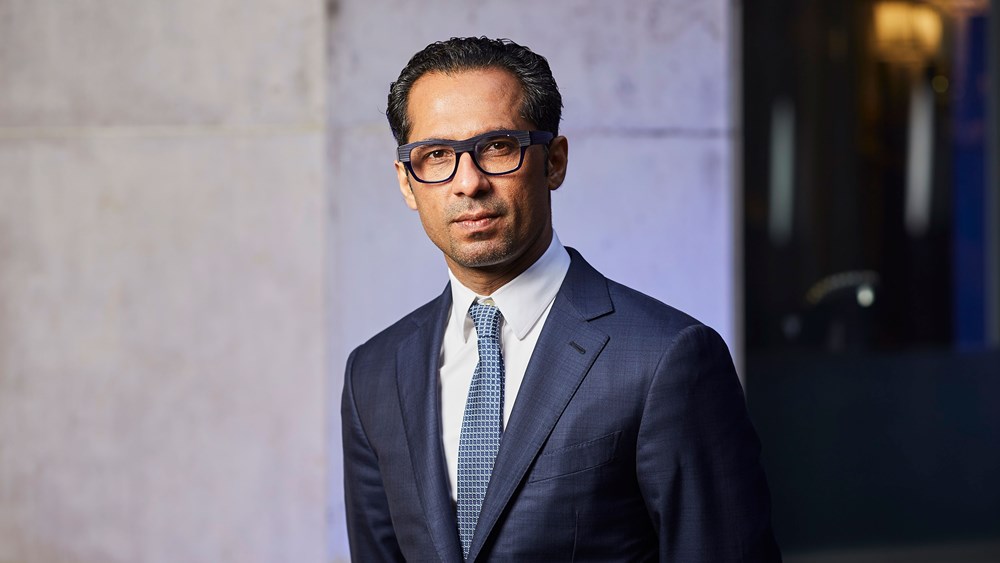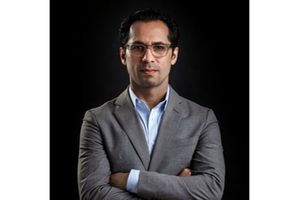
Tanzanian business tycoon, Mohammed 'Mo' Dewji
Dar es Salaam. Tanzanian business magnate Mohammed “Mo” Dewji has surged to a net worth of $2.2 billion, according to Forbes’ 2025 Africa’s Billionaires List, making him the richest person in East Africa and the only one from the region featured among Africa’s top 15 billionaires
This marks a notable rise from last year’s US $1.8 billion, reflecting gains across his diverse holdings in textile manufacturing, flour milling, beverages, edible oils, and more .
Dewji ranks 12th on the continent. At the age of 49, he has earned a distinction as Africa's youngest billionaire.
According to Forbes, Dewji’s net worth has surged from $1.8 billion last year, continuing an upward trajectory after growing from $1.5 billion to $1.8 billion in 2024.
Despite his immense wealth, Dewji remains committed to job creation and economic empowerment. Through his company, Mohamed Enterprises Limited (MeTL), Forbes notes that he has created 40,000 jobs across 126 businesses.
It adds that his vision is to expand employment opportunities to 100,000 for Tanzanians and East Africans.
"I am deeply committed to empowering my fellow Tanzanians and East Africans through job creation and sustainable business practices," Dewji previously said.
Beyond business, Forbes has recognised Dewji as a dedicated philanthropist. Through the Mo Dewji Foundation, he has collaborated with Tanzania’s Ministry of Water to drill, rehabilitate and treat wells, providing over 15,000 people with access to clean drinking water.
Dewji, serves as the CEO of MeTL, a conglomerate founded by his father in the 1970s. The company operates in 10 African countries, including Kenya, Ethiopia and Uganda, with ventures spanning textile manufacturing, flour milling, beverages, and edible oils.
In 2016, he joined the Giving Pledge, committing to donating at least half his fortune to philanthropy.
“It is our duty to give back to society and create a lasting impact for future generations,” Dewji once said of his philanthropic commitment.
In previous interview with Forbes from his $50 million home in Dubai, Dewji revealed his plans to mechanize farming 2,500 miles away. “I want to make Africa, long term, a food basket for the world,” says the 48-year-old billionaire, who was born, raised and until recently lived in Tanzania. A framed photograph of a street in Zanzibar, the Tanzanian archipelago famous for lush white beaches, hangs on a wall behind him. “Why the hell are we not investing in agri?”
The football team owner and former politician controls a range of businesses through his consumer goods conglomerate MeTL Group, including textile manufacturing, edible oil refineries and his Mo Cola carbonated beverages line (named after himself). MeTL already grows crops like tea, avocados, and sisal (a natural fiber used in rope), which are vertically integrated into his other businesses.
Now Dewji wants to grow his agribusiness empire – by orders of magnitude. He is seeking to invest $250 million, including $100 million of his own capital, to buy and mechanize 100,000 hectares of farmland in Tanzania. MeTL would use the crops to feed its own businesses, then sell the surpluses to other Tanzanian firms, African countries and even European customers. Dewji says this “vision” came to him in the aftermath of Russia’s invasion of Ukraine as soaring food and fertilizer prices worsened conditions of poverty and malnutrition in Africa.
Agriculture accounts for one-third of Tanzania’s annual GDP (of $75 billion), but roughly 90 percent of that farming is done by subsistence farmers tilling less than 5 hectares of land each. As a result, food insecurity in Tanzania is widespread: Over 30 percent of children are stunted, and 13 million Tanzanians live in extreme poverty, while “many others live just above the poverty line,” according to the US Agency for International Development. That’s despite Tanzania being the second biggest receiver of foreign aid in Sub-Saharan Africa (behind only Ethiopia) between 1990 to 2010, receiving $26.85 billion. One of those aid suppliers, the World Bank, acknowledges that Tanzania “still faces stubbornly high levels of poverty, in part as a result of dependence on low productivity agriculture.”
Bigger, more efficient farms could help solve Tanzania’s hunger problem. In developing countries, “Larger farms tend to be more efficient than their smaller counterparts,” a recent European Commission paper found. Within Africa, increasing agricultural productivity was “a substantial driver of growth and poverty reduction” in Ethiopia, Ghana, Malawi, Rwanda and Uganda—in contrast to Tanzania and those countries where farming growth lagged, according to a UN study. But agribusiness also comes with costs: human displacement, environmental degradation, disruption of local trading networks upending entire communities. Dewji says the benefits outweigh the cons. “Life goes on for the villagers but [in] a much better scenario,” he says.
According to Forbes, the collective fortunes for African Billionaires has surpassed $100 billion for the first time. The continent’s 22 billionaires now hold a combined net worth of $105 billion up from $82.4 billion in 2024.
TOP 15 RICHEST PEOPLE IN AFRICA
1. Aliko Dangote: $23.9 billion (Nigeria)
2. Johann Rupert: $14 billion (South Africa)
3. Nicky Oppenheimer: $10.4 billion (South Africa)
4. Nassef Sawiris: $9.6 billion (Egypt)
5. Mike Adenuga: $6.8 billion (Nigeria)
6. Abdulsalmad Rabiu: $5.1 billion (Nigeria)
7. Naguib Sawiris: $5 billion (Egypt)
8. Mohammed Mansour: $3.4 billion (Egypt)
9. Koos Bekker: $3.4 billion (South Africa)
10. Issad Rebrab: $3 billion (Algeria)
11. Patrice Mostepe: $3 billion (South Africa)
12. Mohammed Dewji: $2.2 billion (Tanzania)
13. Michael Le Roux: $2.2 billion (South Africa)
14. Othman Benjelloun: $1.6 billion (Morocco)
15. Anas Sefrioui: $1.6 billion (Morocco)


